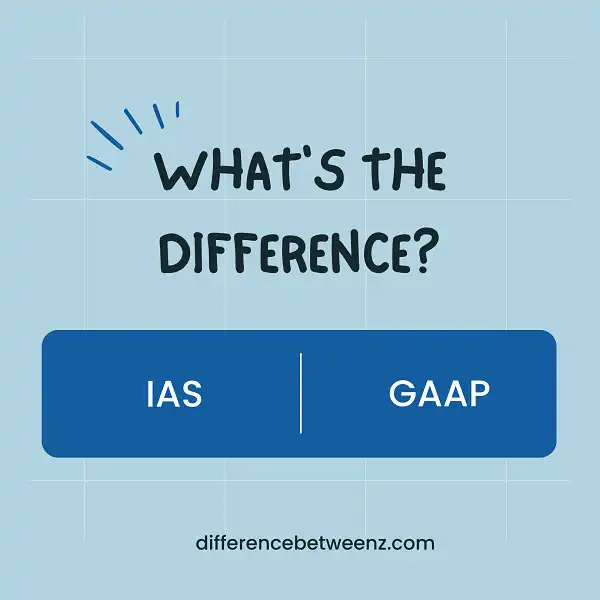IAS and GAAP are two of the most commonly used accounting standards in the world. Both have their advantages and disadvantages, but which one is right for your company? Let’s take a look at the difference between IAS and GAAP to see which one might be a better fit for you.
What is IAS?
IAS International Accounting Standards are a set of accounting standards developed by the International Accounting Standards Board (IASB). IASB is an independent, private-sector body that sets financial reporting standards for public and private companies around the world. IAS International Accounting Standards are designed to provide a common global language for business affairs so that company accounts are understandable and comparable across international boundaries. They are also intended to ensure that financial information is transparent and truthful. IAS International Accounting Standards cover a broad range of topics, including disclosures, recognition, measurement, and presentation. IASB issues new standards as the need arises in order to keep pace with the changing business environment. IAS International Accounting Standards are voluntary, but many countries have adopted them as their national accounting standards.
What is GAAP?
General accepted accounting principles (GAAP) are a comprehensive set of rules and guidelines that govern financial reporting in the United States. GAAP is overseen by a dedicated Financial Accounting Standards Board (FASB), which is responsible for maintaining and updating the accounting standards on an ongoing basis. While GAAP is not a legal requirement, it provides important guidance for financial reporting and is generally adhered to by accountants and businesses alike. IAS is the international equivalent of GAAP. IAS is overseen by the International Accounting Standards Board (IASB). IASBoard sets accounting standards that are followed by countries around the world. IASB aims to promote global comparability in financial reporting. IASB develops standards that are designed to be principles-based, providing a high-level framework that can be applied in a range of different ways. This flexibility makes IAS well suited for use in diverse jurisdictions. As more and more businesses operate across borders, it is increasingly important to have international accounting standards in place to facilitate comparisons between businesses. IASB strives to provide high-quality standards that achieve this goal.
Difference between IAS and GAAP
IAS and GAAP are both accounting frameworks that are used to guide financial reporting. IAS, or International Accounting Standards, are a set of standards that have been issued by the International Accounting Standards Board. GAAP, or Generally Accepted Accounting Principles, is the framework of guidelines and standards used in the United States. IAS is used in more than 120 countries, while GAAP is used in the US and some other countries. IAS is considered to be more principles-based, while GAAP is more rules-based. IAS covers a broader range of topics and provides more guidance on how to account for specific transactions. GAAP, on the other hand, includes detailed requirements for specific items. As a result, IAS is generally thought to provide more flexibility than GAAP.
Conclusion
The goal of this blog post was to provide a high-level overview of the key differences between International Accounting Standards (IAS) and Generally Accepted Accounting Principles (GAAP). We’ve seen that there are some significant distinctions between the two frameworks, particularly in terms of their approach to revenue recognition and accounting for leases. It’s important for businesses to be aware of these differences when preparing financial statements so they can choose the framework that best suits their needs.


